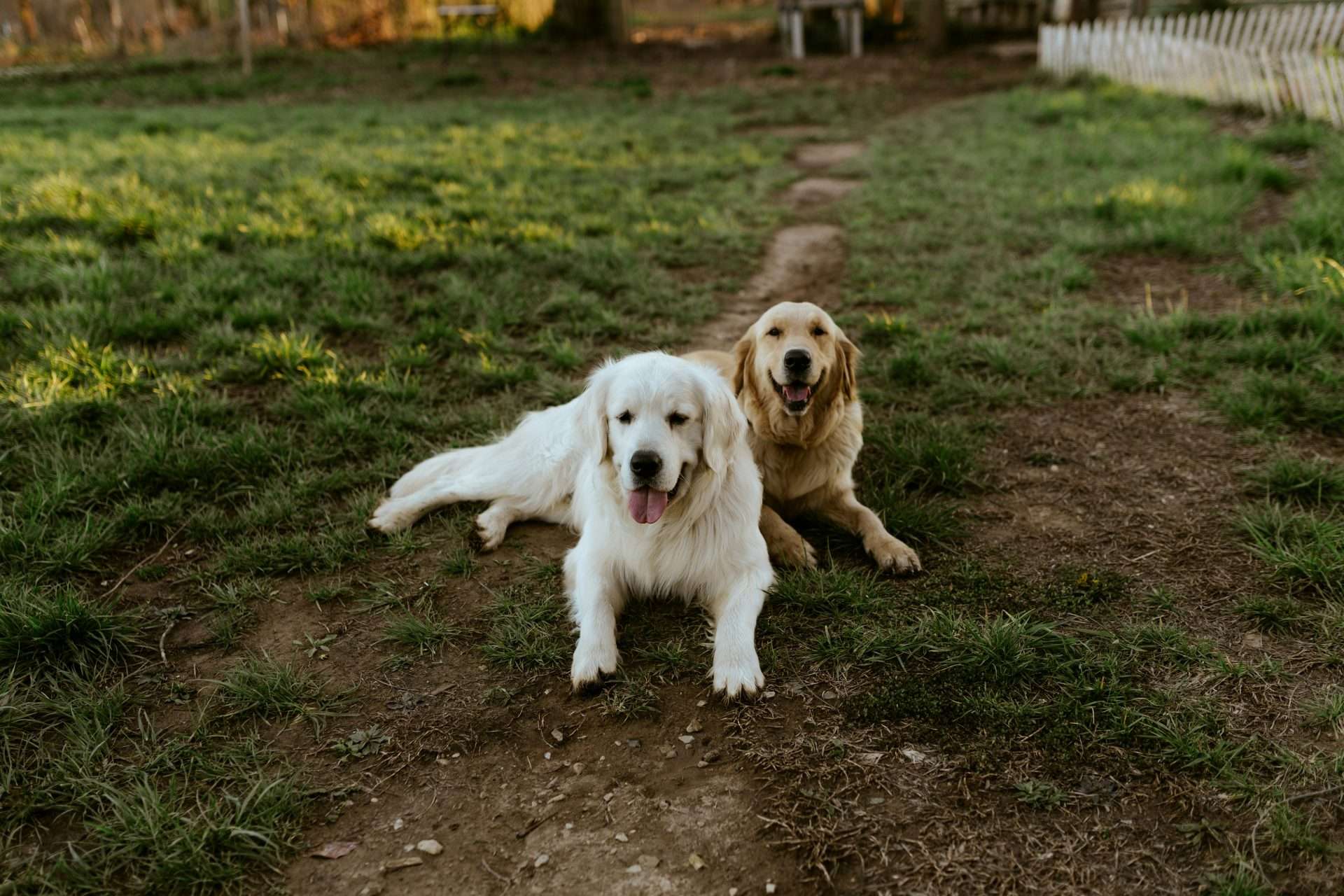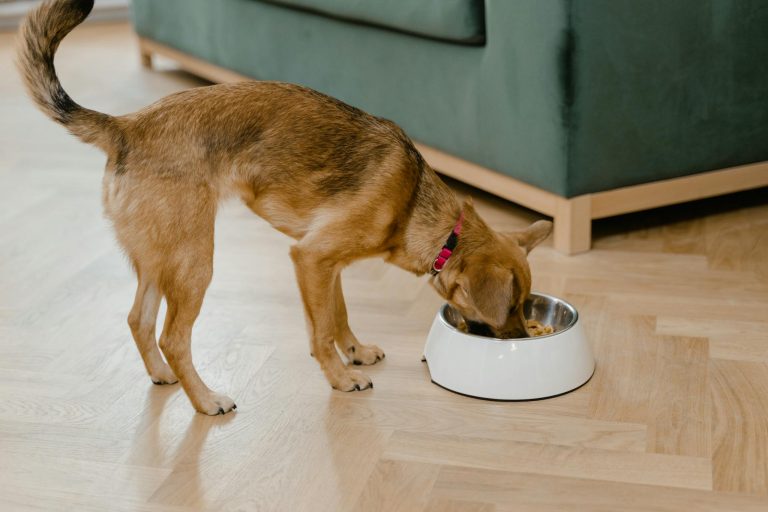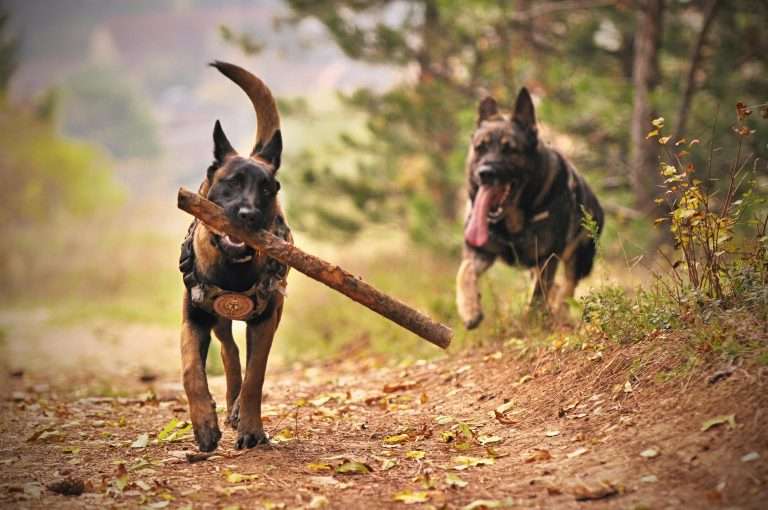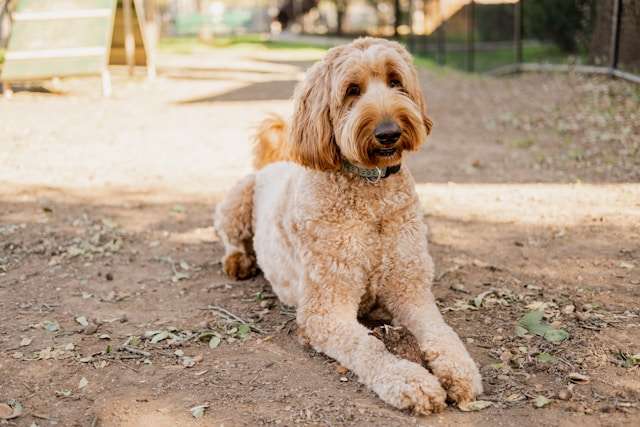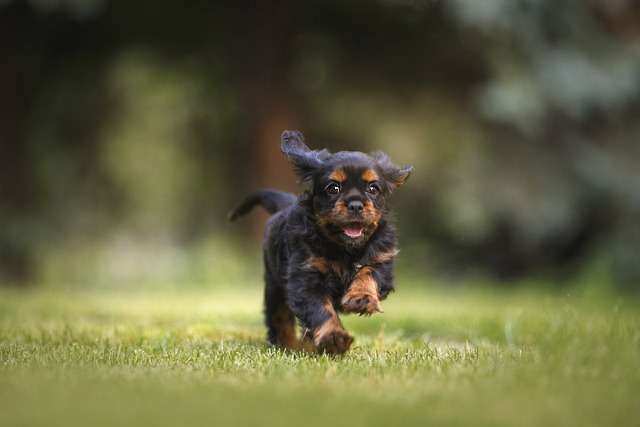Why Do Dogs Eat Grass? Unveiling the Canine Salad Craving Mystery

Why Do Dogs Eat Grass? Have you ever caught your furry friend munching on grass during your walks? You’re not alone! Many dog owners wonder why their pups suddenly turn into little lawnmowers. Let’s dig into this expected canine behavior.
Dogs eat grass for various reasons. Some munch on grass to get more fiber in their diet or to help with digestion. It’s like nature’s salad bar for them! Other times, your puppy might be bored or seeking attention. Picture this: you’re busy with work, and suddenly, your dog starts grazing like a cow. Coincidence? Maybe not!
Sometimes, eating grass can be a sign that your dog isn’t feeling well. They might be trying to soothe an upset tummy or eliminate something bothering them. But don’t worry too much – in most cases, it’s harmless. Just keep an eye on your grass-eating buddy to make sure they’re not overdoing it.
Table of Contents
Key Takeaways
- Dogs may eat grass to aid digestion or get more fiber
- Grass-eating can be a sign of boredom or attention-seeking behavior
- While usually harmless, excessive grass consumption may indicate health issues
Understanding Why Dogs Eat Grass
Dogs often munch on grass, leaving many pet owners scratching their heads. This behavior can stem from various factors, including nutritional needs and digestive health. Let’s explore the key reasons behind this common canine habit.
Dietary Needs and Deficiencies
Ever wonder if your furry friend is trying to tell you something when they nibble on the lawn? It might be about their diet! Dogs sometimes eat grass because they’re missing essential nutrients in their food.
Think of it as their way of saying, “Hey, I need more vitamins!” Some pups on grain-free diets might not be getting enough fiber, which can lead them to seek out grassy snacks. It’s like when you crave a specific food—your body knows what it needs!
Is your dog a grass connoisseur? If so, monitor its eating habits. If it constantly grazes, it might be time to talk with your vet about its diet.
The Role of Fiber
Did you know grass is like nature’s broom for your dog’s insides? It’s true! Grass provides roughage that helps keep things moving smoothly in your pup’s digestive system.
Think of fiber as a cleanup crew for your dog’s gut. It helps:
- Move food through their system
- Keep their poop regular
- Maintain a happy, healthy tummy
Some dogs might turn to grass if they’re not getting enough fiber in their regular meals. It’s their clever way of adding some extra roughage to their diet.
Remember, if your dog is constantly munching on grass, it might be worth looking into high-fiber dog foods. Your vet can help you find the perfect balance for your four-legged friend’s dietary needs.
Behavioral Aspects of Grass Eating
Dogs eat grass for various reasons related to their behavior and instincts. Let’s explore two key aspects that might explain why your furry friend munches on your lawn.
Instinct and Heritage
Ever wonder why your pup seems drawn to grass like a magnet? It’s in their DNA! Like wolves, your dog’s wild ancestors often ate grass as part of their diet. This behavior stuck around even as dogs became domesticated.
Think about it—wolves in the wild don’t just eat meat. They chow down on their entire prey, including the stomach contents. And guess what’s often in there? You got it—plant matter! So when your dog nibbles on grass, it taps into an ancient instinct.
But it’s not just about following in their ancestors’ pawprints. Some experts think grass might help dogs with digestion or act as a natural dewormer. Pretty clever, right?
Boredom and Attention-Seeking Behavior
Is your dog turning your backyard into a salad bar? They might be trying to tell you something! Grass-eating can sometimes signify that your furry friend is bored or wants your attention.
Think about it—if your dog doesn’t have enough to do, it might start looking for ways to entertain itself. And what’s more entertaining than munching on some tasty grass? It’s like a built-in chew toy!
This behavior is widespread in younger dogs and puppies, who have lots of energy to burn. If you notice your dog grazing more often, it might be time to up their exercise and playtime. A tired dog is less likely to munch on your lawn!
Remember, every dog is unique. What works for one pup might not work for another. Keep an eye on your furry friend’s grass-eating habits and chat with your vet if you’re concerned.
Health-Related Issues Behind Grass Eating
Dogs sometimes eat grass due to health problems. Let’s explore two main health-related reasons for this behavior.
Digestive Relief and Vomiting
Has your furry friend ever munched on grass and then thrown up? It’s not uncommon! Some dogs eat grass to soothe an upset stomach.
Think of grass as nature’s antacid for dogs. It can help with:
- Gastric reflux
- Nausea
- General tummy troubles
But here’s a fun fact: less than 25% of grass-eating dogs vomit after grazing. So, while it might help some pooches feel better, it’s not always about making themselves sick.
Does your dog often have a grumbly tummy? If so, you might want to talk with your vet about changing your diet or adding fiber-rich foods.
Signs of Possible Medical Concerns
Sometimes, grass-eating can be a red flag for more significant health issues. Keep an eye out for these warning signs:
- Excessive grass eating
- Frequent vomiting
- Diarrhea
- Lethargy
- Loss of appetite
These could point to problems like:
- Inflammatory bowel disease
- Pancreatitis
- Other digestive disorders
If you notice any of these symptoms along with grass eating, it’s time for a trip to the veterinarian. They can check for underlying illnesses and help your pup feel better.
Remember, a little grass nibbling is usually harmless. But if it becomes a habit or is paired with other symptoms, it’s best to get professional advice. Your dog’s health is worth it!
The Appeal of Grass to Dogs
Have you ever wondered why your furry friend loves munching on grass? Let’s explore the tasty world of canine lawn-grazing!
Dogs find grass appealing for several reasons. You might be surprised to learn that some pups enjoy the taste of grass. It’s like a doggy salad bar right in your backyard!
Grass’s texture can also be enticing. Those crisp blades might feel pretty nice between your dog’s teeth—like nature’s dental floss!
Here are some reasons your dog might be drawn to grass:
- Tasty treat
- Fun texture to chew
- Natural Instinct
- Tummy soother
Did you know grass can act as a natural antacid for your pup? If your dog’s stomach is upset, it might turn to grass for relief.
Some dogs enjoy grazing as a fun activity. It’s like a little outdoor snack adventure! Just make sure your lawn isn’t treated with harmful chemicals.
Remember, not all grass-eating is harmless. If you notice your dog eating excessive amounts or seeming unwell, it’s best to check with your vet. They can help ensure your pup’s grazing habit is just for fun and not a sign of underlying issues.
So, next time you see your dog nibbling on some grass, you’ll know it’s not just being weird. It’s following its instincts and maybe even enjoying a tasty snack!
Safety and Prevention
It is vital to keep your dog safe while addressing grass-eating habits. Let’s examine how to protect your pup from harmful substances and curb unwanted grazing.
Toxic Substances and Plant Safety
Be aware of what’s on and in the grass your dog eats. Pesticides, herbicides, and fertilizers can be toxic to dogs. Check your lawn care products and opt for pet-safe alternatives. Watch out for parasites, too. Hookworms and roundworms can lurk in grass and soil.
Remember houseplants! Many common indoor plants are toxic to dogs. Keep them out of reach, or switch to pet-safe varieties. If unsure, ask your vet for a list of safe plants.
Always supervise your dog outdoors. This helps you spot any harmful substances they might encounter. Call your vet immediately if you suspect your dog has eaten something toxic.
Preventing Unwanted Grass Eating
Want to stop your dog from grass-munching? Start with their diet. Make sure they’re getting enough fiber and nutrients. Talk to your vet about adding fiber-rich foods or supplements if needed.
Training is your best friend here. Use positive reinforcement to teach the “leave it” command. Reward your dog when it ignores grass on walks. Please keep it on a leash in grassy areas until it’s reliably trained.
Frequently Asked Questions
Dogs eat grass for various reasons, from dietary needs to boredom. Let’s explore some common questions you might have about this behavior and how to address it.
What signs should I look for if my dog eats grass to induce vomiting?
Watch for excessive grass consumption followed by gagging or retching. Your dog might also show discomfort before eating grass, like pacing or whining.
Is it normal for a dog to eat grass on walks, and what does it signify?
Yes, it’s usually expected. Your dog might be seeking fiber or simply enjoying the taste. There’s no need to worry if it’s occasional and doesn’t cause issues.
Should I be concerned if my dog eats grass frequently and prefers it?
If your dog eats grass often, it might signal a nutritional deficiency or digestive issue. Monitor how much your dog is eating and consult your vet if it seems excessive.
How should I address my dog’s grass-eating if they do it out of boredom?
Try increasing playtime and mental stimulation. Puzzle toys, more walks, or training sessions can help curb boredom-related grass eating.
What dietary changes might help if my dog eats grass due to a nutritional deficiency?
Consider adding more fiber to your dog’s diet. You might switch to a higher-fiber food or add fresh vegetables to your meals. Always consult your vet before making significant diet changes.
When might eating grass be a sign of a more severe health issue for my dog?
If grass-eating is accompanied by other symptoms like vomiting, diarrhea, or lethargy, it could indicate a health problem. Also, sudden increases in grass consumption might warrant a vet visit.
Why Do Dogs Have Whiskers? Unveiling the Secret Superpowers

